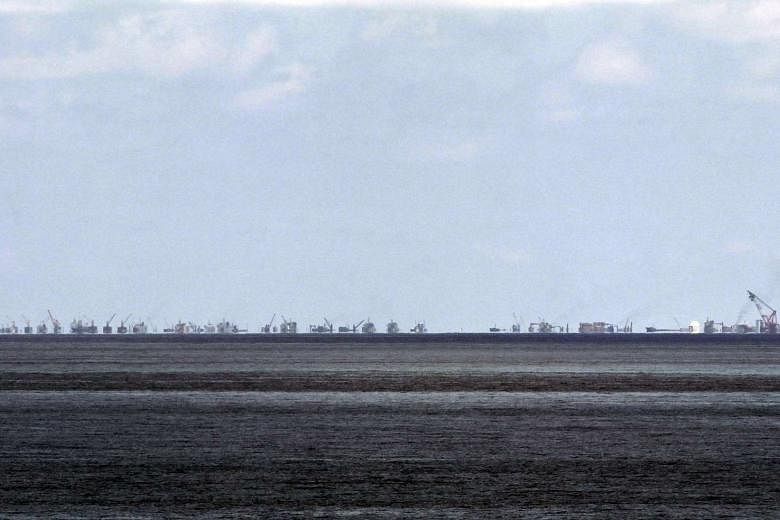MANILA - An international arbitration court in the Netherlands has ruled that it has jurisdiction over a case filed by the Philippines contesting China's claims to nearly all of the South China Sea.
The decision clears the way for the Philippines to argue the merits of its case.
"Reviewing the claims submitted by the Philippines, the tribunal has rejected the argument" by China that the "dispute is actually about sovereignty over the islands in the South China Sea and therefore beyond the tribunal's jurisdiction", the Permanent Court of Arbitration (PCA), helmed by veteran maritime Judge Thomas Mensah, said in a nine-page summary it released late on Thursday (Oct 29).
Ms Bonnie Glaser, a South China Sea expert at the Centre for Strategic and International Studies in Washington, told Reuters the outcome is "a major blow for China given that the opinion explicitly rejects China's arguments that ... the Philippines has not done enough to negotiate the issues with China".
The ruling also sends a signal to other countries claiming parts of the South China Sea that they too can file a similar suit against China, according to political analyst Richard Javad Heydarian, of the Philippines' De La Salle University.
The Philippines filed a 4,000-page plea in March last year (2014) alleging that China violates international laws by claiming areas that are 1,611km away from its borders.
Citing historical records and maps, China claims nearly all of the 3.5 million sq km South China Sea. It formally marked the boundaries of these claims in 1953 with a "nine-dash line" that protrudes from China's southern Hainan island and loops towards Indonesia.
The line overlaps with territories claimed by the Philippines, Vietnam, Malaysia, Brunei and Taiwan. China has refused to take part in the case. But in a position paper, it said the "essence" of the Philippines' case is sovereignty, which is beyond the PCA's scope.
It said the tribunal lacks the mandate to determine who owns islands, reefs, shoals atolls, lagoons and other rocky outcrops in the South China Sea.
The Philippines, on the other hand, argued that its case is not about sovereignty, but a plea to have an international court declare China's "nine-dash line" as inconsistent with the UN Convention on the Law of the Sea (Unclos).
Unclos does not rule on sovereignty, but it does outline a system of territory and economic zones that can be claimed from features such as shoals, islets, reefs and other rocky outcrops.
China has said it will not recognise any ruling from the PCA.
Mr Heydarian said while a ruling that will ultimately favour the Philippines cannot be forced upon China, it will be "a huge embarrassment for an aspiring superpower that cherishes soft power and influence".
"This is, after all, about ensuring all states align their territorial claims with prevailing international legal principles," he said.


